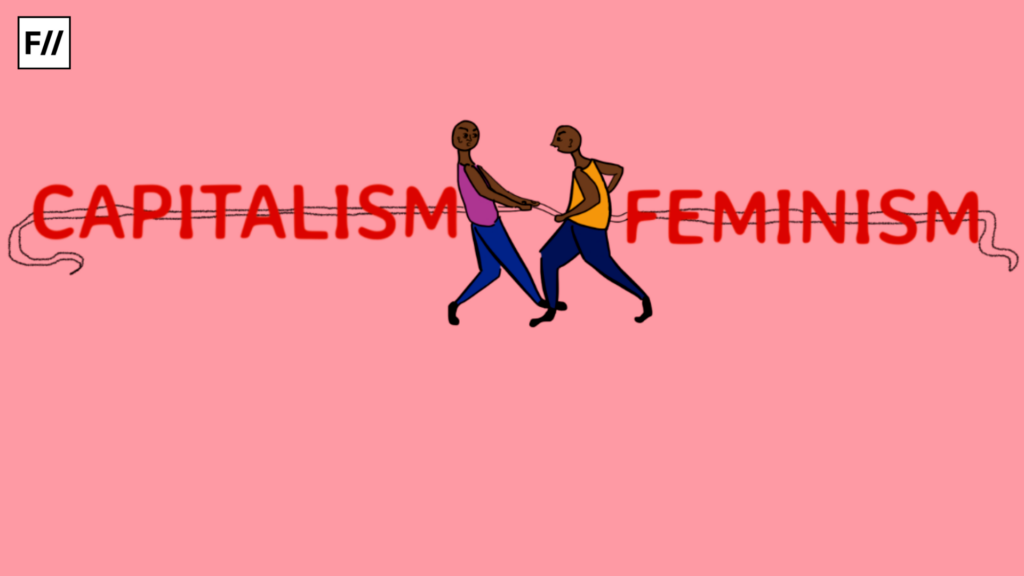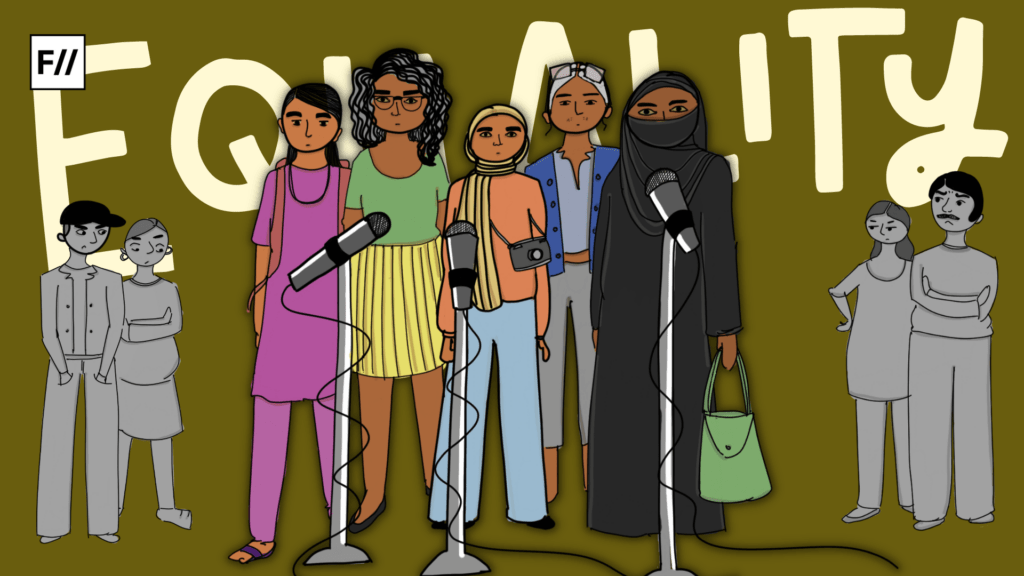Over the past few years, Indian society has witnessed a concerning trend of growing polarisation along religious lines. Regrettably, Islamophobia has found its way into various sections of society, including the Indian private sector. Recently Khalid Parvez, a former employee at Apple, recently shared his decision to resign from the prestigious tech giant without securing a new job. In his LinkedIn post, Parvez raised serious accusations, including mental harassment, abusive language, possible business misconduct, and Islamophobic comments. He also highlighted managerial errors that led to four months of homelessness for him and his family, resulting in severe mental health issues.
Employers in India’s private sector are not currently legally bound to refrain from discriminatory practices based on religion when considering job applicants, thereby indicating that there are no provisions to sue the company, compel consideration on merit, or impose sanctions in cases where Muslim candidates are disqualified due to discriminatory hiring policies.
Parvez’s experience underscores the need for a comprehensive examination of workplace practices and the urgent implementation of measures to combat Islamophobia. It is crucial for organisations to foster inclusive and diverse environments that promote understanding, empathy, and equal opportunities for all employees.
Employers in India’s private sector are not currently legally bound to refrain from discriminatory practices based on religion when considering job applicants, thereby indicating that there are no provisions to sue the company, compel consideration on merit, or impose sanctions in cases where Muslim candidates are disqualified due to discriminatory hiring policies.

Islamophobia, which refers to irrational fear, prejudice, or discrimination against Islam and Muslims, can manifest in various forms, including workplace discrimination. Such discrimination may involve biased hiring practices, unequal treatment, harassment, or exclusionary behaviour toward Muslim individuals. This has been consistently demonstrated by numerous reports and surveys. It is essential to recognise that the challenges faced by Muslims encompass a range of interconnected issues, including security, identity, and equity.
The complex interplay of these dimensions lies at the heart of the socio-economic and political dynamics that the community confronts on a daily basis. Hindutva forces are fueling a climate of division and animosity in everyday life, uniting both rural and urban areas in their discrimination against religious minorities and marginalised communities. Fear and prejudice have become the foundation upon which urban and rural India rely to confront a bleak future shaped by Islamophobic politics.
Poverty, unemployment, hunger, homelessness, and crime are the five direct consequences of the Islamophobic exploitation of India and its people. The depletion of public resources, erosion of public trust, dismantling of public institutions, and weakening of communal bonds are at the core of Islamophobic dominance over society and politics, as well as the control exerted by crony capitalists over the economy.
Poverty, unemployment, hunger, homelessness, and crime are the five direct consequences of the Islamophobic exploitation of India and its people. The depletion of public resources, erosion of public trust, dismantling of public institutions, and weakening of communal bonds are at the core of Islamophobic dominance over society and politics, as well as the control exerted by crony capitalists over the economy. These processes contribute to the fragmentation agenda that aligns with the principles of capitalism. Islamophobia and capitalism are intertwined forces that accelerate the relentless deprivation of life, freedom, and livelihoods in India.

In contrast to other countries where affirmative action policies have been implemented successfully in both private and public sectors, the situation in India presents unique challenges. The privatisation process and the state’s withdrawal from various domains during the liberalisation era have inadvertently limited the progress made by marginalised groups, compressing the already limited space they had gained. Regrettably, the Indian corporate sector tends to deny the possibility of caste or community discrimination within the labour market. It asserts that religious identities are not considered in employment practices within the private sectors.
Although research on religious discrimination in the workplace is relatively limited, a number of studies have looked at the specific challenges Muslims face in the workplace in India, especially during the hiring process. Discrimination in the hiring of Muslims may be further amplified by the sex of the applicant and the wearing of religious identifiers such as the hijab.
Muslims, comprising nearly 14 percent of India’s population of 1.35 billion, face significant underrepresentation in both government and private sector jobs. The findings of the Justice Rajinder Sachar Commission in 2006 revealed the social, economic, and educational disadvantages faced by India’s Muslim community. The commission reported that less than 8 percent of Muslims were employed in the formal sector, a stark contrast to the national average of 21 percent.
Muslims, comprising nearly 14 percent of India’s population of 1.35 billion, face significant underrepresentation in both government and private sector jobs. The findings of the Justice Rajinder Sachar Commission in 2006 revealed the social, economic, and educational disadvantages faced by India’s Muslim community. The commission reported that less than 8 percent of Muslims were employed in the formal sector, a stark contrast to the national average of 21 percent.

According to a recent report by Oxfam India published in 2022 certain groups of people in India, such as women, Muslims, Dalits, and tribals, have been facing discriminatory practices in the workplace. The report defines discrimination in the labour market as treating people differently based on their identity or social background, even if they have the same skills and capabilities.
Amitabh Behar, the CEO of Oxfam India, mentioned that the study collected data from 2004 to 2020, using government data on jobs, wages, health, and agricultural credit for different social groups. The findings indicate that Muslims, in particular, continue to face various prejudices and challenges in both salaried jobs and self-employment opportunities. In rural areas, this discrimination led to a significant increase in unemployment among Muslims during the first quarter of the Covid-19 pandemic, resulting in an unemployment rate of 31.4 percent. In urban areas, only 15.6 percent of Muslims aged 15 and above were able to secure regular salaried jobs in 2019-20, compared to 23.3 percent of non-Muslims.
India is home to nearly 50 million working-age women from Muslim communities. Astonishingly, only 10% of women in the workforce identify as Muslim, according to the 2011 census. This statistic portrays the striking underrepresentation of Muslim women in various professional domains, accentuating the urgent need to address the systemic biases they face. A recent research conducted by the LedBy Foundation in 2022 a non-profit organization supporting professional leadership among Indian Muslim women, exposes the serious hurdles that Muslim women encounter in their pursuit of employment.
The study indicates a substantial hiring bias against Muslim women, as they receive only half the number of call-backs from job applications compared to Hindu women. This discrimination rate of 47.1% highlights the immense discrepancy between the treatment of Muslim and Hindu women in Indian society. The bias against Muslim women in the job market is not unique to India only.
The study indicates a substantial hiring bias against Muslim women, as they receive only half the number of call-backs from job applications compared to Hindu women. This discrimination rate of 47.1% highlights the immense discrepancy between the treatment of Muslim and Hindu women in Indian society. The bias against Muslim women in the job market is not unique to India only.

A 2017 survey conducted by researchers from Harvard Business Review analysed the discrimination faced by Muslim women who wear hijabs in German society. The results of the study demonstrated that employers were more inclined to hire women who did not wear hijabs, as it conveyed a perceived willingness to “integrate” into a “secular” environment. This finding exemplifies the global nature of Islamophobia and the challenges faced by Muslim women in various societies.
Consequently, the absence of such reporting creates challenges in addressing economic discrimination within the private sector. With the public sector undergoing a contraction, there is a growing need for affirmative action policies to be considered in the private sector. By acknowledging and addressing religious discrimination, the corporate sector can work towards eliminating prejudice and discriminatory practices. It is important to recognise the existence of Islamophobia to foster positive changes and break free from the current status quo.
In India, the transparency regarding the employment composition of private sector enterprises is limited as corporations are not required to report the caste and religious makeup of their workforces to the government. Consequently, the absence of such reporting creates challenges in addressing economic discrimination within the private sector. With the public sector undergoing a contraction, there is a growing need for affirmative action policies to be considered in the private sector. By acknowledging and addressing religious discrimination, the corporate sector can work towards eliminating prejudice and discriminatory practices. It is important to recognise the existence of Islamophobia to foster positive changes and break free from the current status quo.
To achieve this, a well-thought-out strategy and a nuanced approach are essential. By implementing such an approach effectively, the message can gradually permeate societal attitudes and bring about a positive shift in employer consciousness. This, in turn, can lead to fairer representation and increased employment opportunities for the Muslim community. By recognising the potential benefits of inclusivity and actively working towards it, businesses can contribute to a more equitable society and tap into the untapped potential of this significant consumer segment.
About the author(s)
Aamir Raza is a dedicated researcher based in New Delhi, India. He holds a Master's degree in Political Science from Jamia Millia Islamia University, New Delhi. He has been previously associated with Lokniti-CSDS and the Institute of Perception Studies as a Researcher. His areas of research interest include Electoral politics, representation, minority studies, ethnic politics and democratisation.





